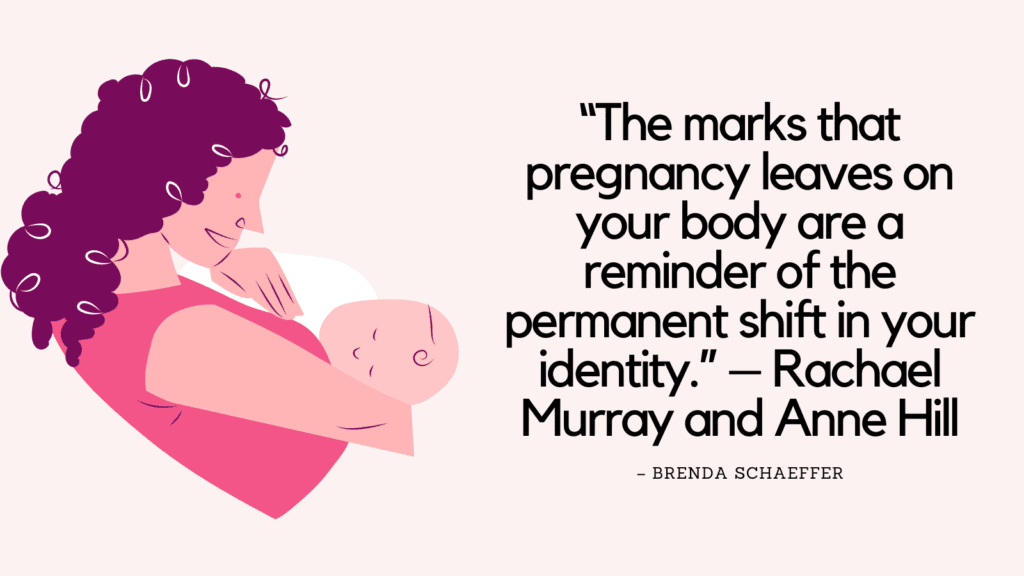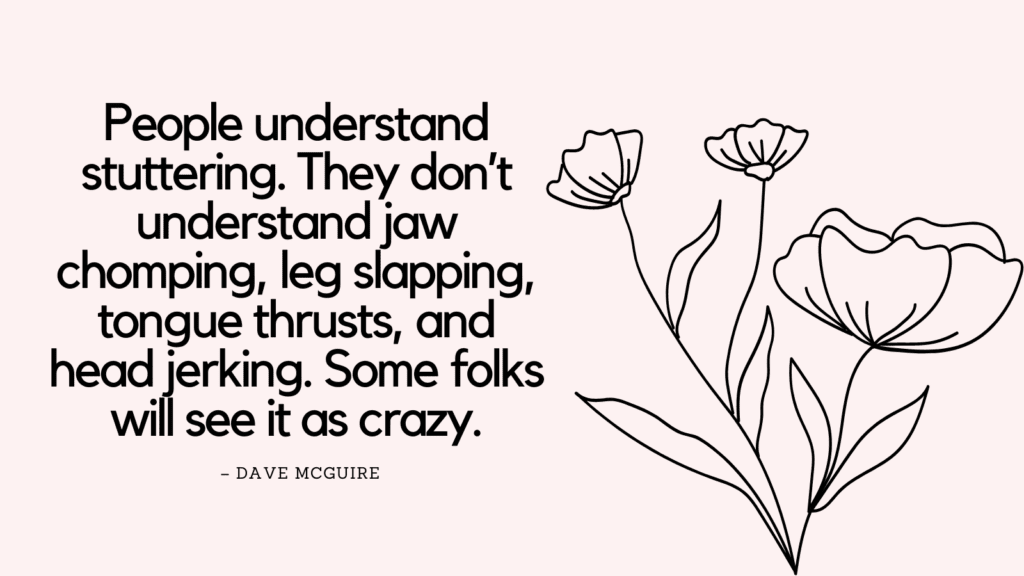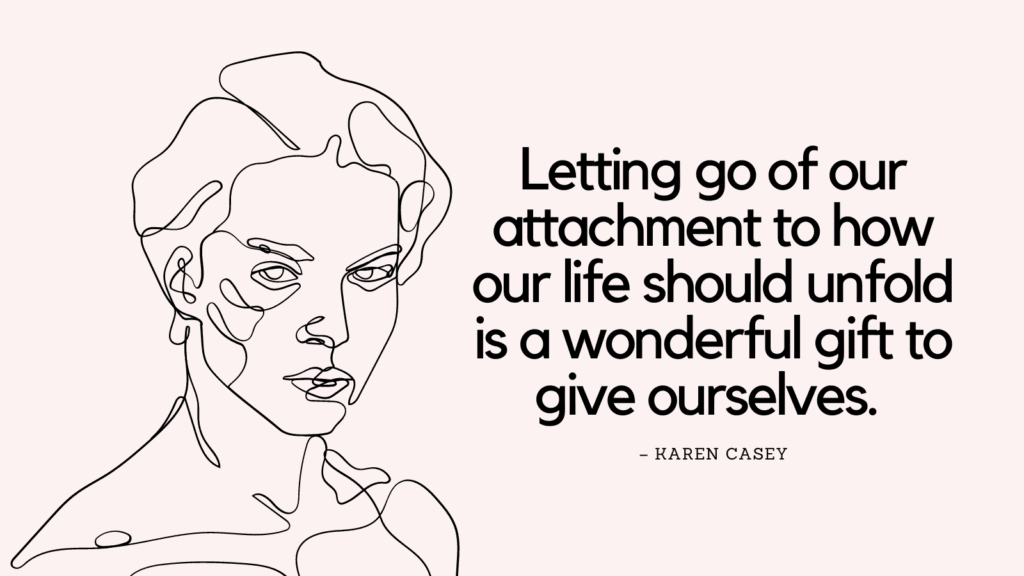This post contains some of the best quotes about postpartum depression.
What Is Postpartum Depression?
Postpartum depression is a type of depression that occurs after giving birth and can affect both mothers and fathers. It is characterized by feelings of sadness, anxiety, irritability, and exhaustion that can interfere with daily life and bonding with the baby.
Symptoms may include:
– Feeling overwhelmed or unable to cope
– Feelings of sadness, hopelessness or emptiness
– Difficulty bonding with the baby
– Loss of interest in activities you once enjoyed
– Anxiety or panic attacks
– Thoughts of harming yourself or your baby
Postpartum depression can be caused by hormonal changes, lack of sleep, and the stress of caring for a new baby. Treatment may include therapy, medication, and/or support groups. It’s important to seek help if you are experiencing symptoms of postpartum depression as it can have serious consequences if left untreated.
Quotes About Postpartum Depression
1. “The symptoms of postpartum depression must not be confused with the baby blues, a common phenomenon affecting the majority postpartum women. Symptoms such as sadness, weepiness, irritability, and anxiety can emerge shortly after birth and typically resolve within the first 2 to 3 postpartum weeks (when hormones settle down).” – Karen Kleiman
2. “As a matter of review, postpartum depression is the presence of a clinical depression during the postpartum period. The postpartum period is loosely defined as the first year following the birth of a baby.” – Karen Kleiman
3. “The effect postpartum depression has on a marriage can manifest in myriad ways. Whether your marriage was steady and strong prior to depression or not, the force of symptoms can break down the best of ties. Not long-term. Not irrevocably. But when the pitch-black landscape engulfs one half of a partnership, it’s hard for either one to breathe.” – Karen Kleiman
4. “It has been shown that depression or anxiety during pregnancy, poor social support, stressful life events, previous history of depression, and a family history of depressive disorders are strong predictors of major depression in postpartum women.” – Karen Kleiman
Related: Am I Lonely Quiz (+ Top 5 Tips To Overcome Loneliness)
5. “During and after postpartum depression, both partners often feel alone in their anguish and misunderstood. They have become partners in agony. Once treatment begins to take hold and there is less focus on the illness and symptoms, both work fervently to get back to the business at hand. Back to being a family, focus on the baby, back to making up for lost time.” – Karen Kleiman
6. “Depression affects the way you think and how you think can affect your depression. When someone is depressed, their perception of the world around them, changes.” – Karen Kleiman
7. “Remember that depression changes the way you feel about yourself and your perceptions of the world around you, including your marriage.” – Karen Kleiman
8. “We know that the postpartum period is a busy, unpredictable, constantly changing stage of life. This is an understatement.” – Karen Kleiman
Related: Journal Prompts For Depression (+FREE Depression Worksheets PDF)
9. “Please understand that treating your PPD is the best thing you can do for your baby. Untreated or undertreated depression has lasting consequences during pregnancy, in the postpartum stage, and when parenting.” – Abigail Burd
10. “Postpartum depression can persuade the sufferer to remain locked in self-absorbed thoughts. It becomes difficult to see much else beyond the borders of the distorted thinking that accompanies depression.” – Karen Kleiman
11. “I often wonder how much PPD we would have if new families had appropriate social support. In modern Western culture, nuclear families are isolated in their individual homes. This is the worst possible setup for new parents. Many traditional societies practice nurturing new parents for 40 days, 6 weeks, 2 months, or a similar amount of time. (You may hear people call this “the fourth trimester.”)” – Abigail Burd
12. “Sometimes, when ambivalence drops in on a marriage struggling to recover from postpartum depression, it can result from sheer exhaustion. It is no secret the sleep deprivation can be the greatest enemy of all.” – Karen Kleiman
13. “On top of the usual busting of unrealistic expectations of motherhood, postpartum depression (PPD) adds a heavy layer. To be assaulted with PPD is a huge disappointment, to say the least — more of a shock, devastation, and feeling of failure to most.” – Shoshana S. Bennett
14. “Even without a postpartum mood disorder, given the biochemical changes you’ve been subjected to and are still experiencing, plus the huge life change, you’re likely to experience intense ups and downs as you adjust to your new life.” – Shoshana S. Bennett
15. “Any depression or anxiety that has been hanging around you in the past, however mild, typically becomes exaggerated. For instance, if you’ve dealt with low-grade depression before, after delivery it can go over the line and become postpartum depression (PPD).” – Shoshana S. Bennett
16. “What will further increase your risk for PPD is the presence of any stressor in your life that occurs around the time of your baby’s birth. In other words, moving to a new location, selling a house, or adding on to the old house right before delivery isn’t a good idea. In fact, this is the absolute worst time for your mental health to do any of these things. Before you make any big changes, wait until things have settled a bit in your life — usually a few months postpartum is sufficient.” – Shoshana S. Bennett
17. “With any of the postpartum disorders, you can expect to find a wide range of severity — from mild to moderate to severe. Regardless of which level you’re at, one thing is for sure: When you suffer from a postpartum disorder, it always feels bad.” – Shoshana S. Bennett
Related: Postpartum Anxiety Quiz (+ 5 Tips On Overcoming PPA)
18. “You’re not weak, just vulnerable. As a matter of fact, women are at their very most vulnerable during pregnancy and postpartum.” – Shoshana S. Bennett
19. “Postpartum depression (PPD) fogs your thinking and makes it difficult to find clarity in anything, especially these new emotions you’re feeling.” – Shoshana S. Bennett
20. “Don’t despair. You’ll eventually feel better. Just remember that even though postpartum depression (PPD) can sometimes disappear quickly, it usually dissipates in layers and takes time — anywhere from a few weeks to a few months.” – Shoshana S. Bennett
21. “As with every other postpartum disorder, you don’t have to suffer through it alone. Clue in your support people as much as possible.” – Shoshana S. Bennett
Related: Do I Have Seasonal Depression Quiz (+Top 12 Natural Ways To Boost Your Mood)
22. “When we have PPD, our beliefs tend to be more negative. We often are overly critical of ourselves and pessimistic. If you are experiencing this thought pattern, please don’t judge yourself. Have you ever heard the phrase “looking through rose-colored glasses”? PPD slaps glasses tinted dark gray over our view. Everything gets filtered more negatively. Fortunately, it is possible to start to correct a negative filter. The first step is noticing it.” – Abigail Burd
23. “Oh, anger—the PPD symptom we least expect. Many women experiencing postpartum anger might not even realize they have PPD. Some women will externalize their anger or attribute it to outside sources. Often partners will get the brunt of the misplaced anger. Other postpartum parents might feel angry at the baby for waking them up, being difficult to soothe, not feeding easily, or just disrupting their lifestyle.” – Abigail Burd
24. “Parents of all genders can experience PPD as anger. In fact, depressed male-identified parents are more likely to express anger than feel sad, as they may have grown up thinking anger is more socially acceptable than being weak or vulnerable.” – Abigail Burd
25. “One of the best things you can do for your baby is to keep working on your PPD symptoms.” – Abigail Burd
26. “There is hope, even when your brain tells you there isn’t.” – John Green
27. “You are not a failure for struggling. You are human.” – Unknown
28. “Motherhood is the greatest thing and the hardest thing.” – Ricki Lake
29. “Even when it feels impossible, you are doing the impossible every single day.” – Unknown
30. “You are not the only one struggling. Even if it feels like it, you’re never alone.” – Unknown
31. “You don’t have to do it all alone. Some days, asking for help is the best thing you can do.” – Unknown
32. “Postpartum depression makes you suddenly feel like a stranger to yourself, but knowing the clinical facts are the first step toward wellness.” ― Judy Dippel
33. “There is hope in knowing this about postpartum depression: You are not the only one to experience this confining, crazy making inner chaos within yourself.” ― Judy Dippel
34. “Motherhood is not about having it all together. It’s about loving your child even when you don’t feel at your best.” – Unknown
35. “Being a new mother is supposed to be the happiest time of your life, but postpartum depression and anxiety strip that away for a time, but trust that it will not last forever.” ― Judy Dippel
36. “Some days, surviving is thriving.” – Unknown
37. “Postpartum depression makes a woman feel like she is in the grip of something dreaded and dark, and it’s scary. . . but she’s likely ashamed to admit it because she can’t explain it!” ― Judy Dippel
38. “Bad moments don’t make bad mamas.” –Unknown
39. “Taking care of yourself is part of taking care of your baby.” – Unknown
40. “Every time you say yes to something that drains you, you’re saying no to yourself.” – Unknown

How to Manage Postpartum Depression
First, Know What You’re Dealing With
Postpartum depression is not weakness, ingratitude, or failure. It is a real mood condition caused by hormonal shifts, sleep loss, physical recovery, and sudden life change. It does not go away by “trying harder.”
Get Professional Support Early
If symptoms last more than two weeks, get help.
• Tell your doctor exactly how bad it feels, not the polite version
• Ask directly about postpartum depression screening
• Therapy and medication are valid and effective options
• Waiting it out often makes it worse, not better
Reduce Isolation on Purpose
Depression grows in isolation.
• See or talk to one adult daily
• Ask someone to come over even if you feel low
• Do not wait until you feel better to reach out
Protect Sleep Aggressively
Sleep loss fuels postpartum depression.
• Sleep in shifts if possible
• One longer stretch of sleep matters more than many short naps
• Let someone else handle the baby so you can sleep
• Sleep is treatment, not a luxury
Lower the Load Immediately
Depression worsens when demands stay high.
• Do less, not better
• Drop non-essential tasks
• Meals, laundry, and cleaning can be basic
• Survival mode is appropriate
Challenge the Guilt Thoughts
Depression lies convincingly.
• Feeling numb does not mean you don’t love your baby
• Wanting a break does not mean regret
• Struggling does not mean you made a mistake
• Thoughts are symptoms, not truths
Use Structure, Not Motivation
Motivation is unreliable in depression.
• Wake up and sleep at roughly the same time
• Eat regular meals even if appetite is low
• Get dressed daily, even in simple clothes
• Small routines stabilize mood
Get Help With the Baby
You do not heal while constantly on duty.
• Let others feed, hold, or walk the baby
• Relief helps depression even if guilt shows up
• Help is not a sign of failure
Watch for Anxiety and Intrusive Thoughts
Postpartum depression often includes anxiety.
• Constant fear something bad will happen
• Intrusive thoughts that feel disturbing
• Needing constant reassurance
These are treatable and common. Tell a professional.
Avoid Comparing Yourself
Comparison deepens depression.
• Other people’s highlight moments are not reality
• Healing timelines differ
• You are not behind
Know When It’s Urgent
Get immediate help if you have:
• Thoughts of harming yourself
• Thoughts of harming your baby
• Feeling unable to keep yourself or your baby safe
Emergency help is support, not punishment.
Key Truths to Hold Onto
• Postpartum depression is treatable
• You do not need to feel bonded to be a good parent
• Getting help protects you and your baby
• Feeling this way does not define you
• Recovery is possible even if it feels far right now



